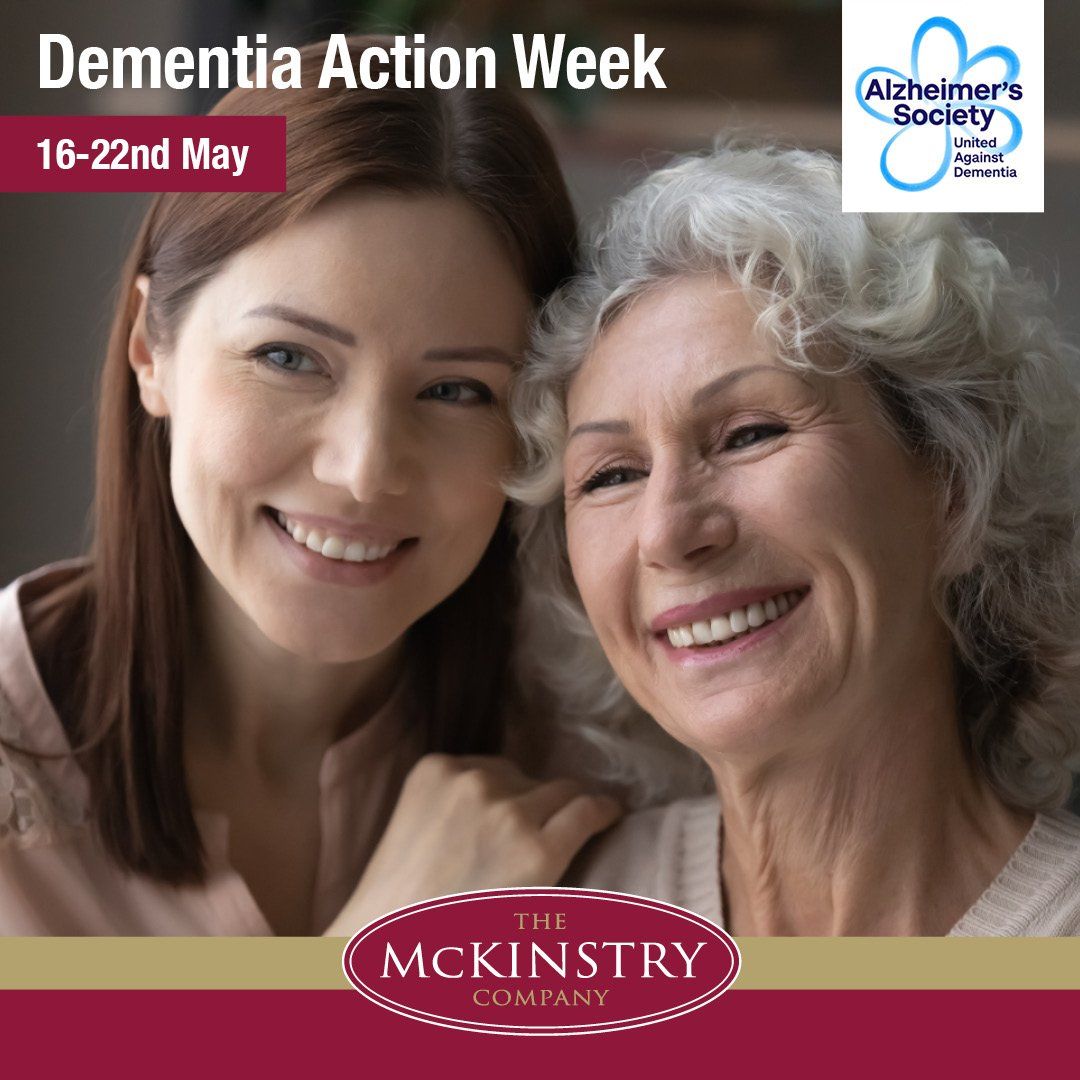Dementia Action Week - Plan ahead and appoint a Power of Attorney
Losing mental capacity is a distressing experience for both you and your loved ones. But, if you plan ahead and appoint a Power of Attorney, the impact on your family can be lessened.

This Dementia Action Awareness week (16–22 May)
Alzheimer's Society want you to take action if you are worried about memory loss. A timely diagnosis can help you make important decisions about treatment, support and care. Three out of five people with dementia wish they had got a diagnosis sooner.
Dementia. A condition describing certain neurological disorders that ultimately lead to the eventual loss of the brain’s functions. Dementia is a progressive condition and by late-stages it can impact the affected person’s life in so many profound ways. Also, not to forget the many ways the condition affects the lives of people close to a person living with dementia. This is a topic many people would not like to bring-to-mind however dementia is a very real issue many people are facing. It is thought that ninety thousand people in Scotland are living with this condition and seventy-four percent of people knowing or knew a person with dementia.
There are five common types of dementia (vascular dementia, frontotemporal dementia, mixed dementia, dementia with Lewy bodies and Alzheimer’s disease) and over two hundred subtypes of the same condition.
Some common symptoms to early stages of dementia include difficulty finding the right words, difficulty following a discussion, changes in mood and finding it difficult to preform everyday tasks (such as calculating the correct change when out shopping). The mentioned symptoms are often called “mild cognitive impairment” (MCI) and is not enough to be diagnosed as dementia. These symptoms may seem inconsequential at the time however they slowly and progressively worsen. Sometimes the people affected don’t even notice these symptoms. Friends and family may disregard them as something “unimportant”. Some people with “mild cognitive impairment” (MCI) could go on to develop dementia. Fifty percent of people living with dementia have not yet received a diagnosis. Dementia, along with Alzheimer’s disease is the main cause of death for people in their nineties (developing dementia isn’t a part of getting older).
In the later stages of dementia people can develop behavioural problems, communication problems, mobility problems and other significant changes to their life. For loved ones taking care of a person with dementia would perhaps be one of their most challenging tasks they would ever have to face as a person you once knew would slowly be taken from you. There are many stories highlighting the horror of dementia. In one such case the patient’s carer (her daughter) said” I felt as if I couldn’t leave my mum on her own, in case she wanders so it’s 24/7.”
Such problems do require twenty-four-hour health care and even that has its own set to problems. For weekly twenty-four-hour nursing in a care home the costs could reach to one thousand pounds. Fifty point nine million pounds a year is faced by the people living with advanced dementia. These are quite substantial cost and some families are considering going to extreme lengths to cover the cost of this care, one family even fearing that they would have to sell their family home.
With thirty five percent of people living with advanced dementia in Scottish care homes it is estimated that another twenty thousand new cases of dementia will arise in the next year. Unfortunately, there is no cure for dementia. Only some of its symptoms can be eased by treatment. With the progressive nature of this illness the person affected and their family can face a lot of uncertainty about the future (such as their financial status, their mental and physiological state). Even though their options may seem limited there are things that can be done to secure stability.
Power of Attorney
Making a Power of Attorney can be the first step in regaining stability as it allows you to appoint a trusted person (family or friend) of your own choosing to make decisions for you on your behalf (both financial and personal).This is in case you lose capacity (and you are incapable of making your own decisions). Power of Attorney may not even be needed but its always there and its better to be safe than sorry.
Importance of Having a Will
Creating a Will always will be useful as you are in control of what happens to your assets. Without one the law can decide what happens to your assets and your assets may even be divided up in a way that is unsatisfactory to you. Creating a will gives you peace of mind it is an easy process and will pay off in the future.
The McKinstry Company can offer support with legal issues such as Power of Attorney, Wills, Care Home Planning and many other services. The McKinstry Company will make the process quick and simple with the highest level of professionalism.
It is in everyone’s interest to act now to ensure more stability in their later life and peace of mind. Contact our Private Client team today.



